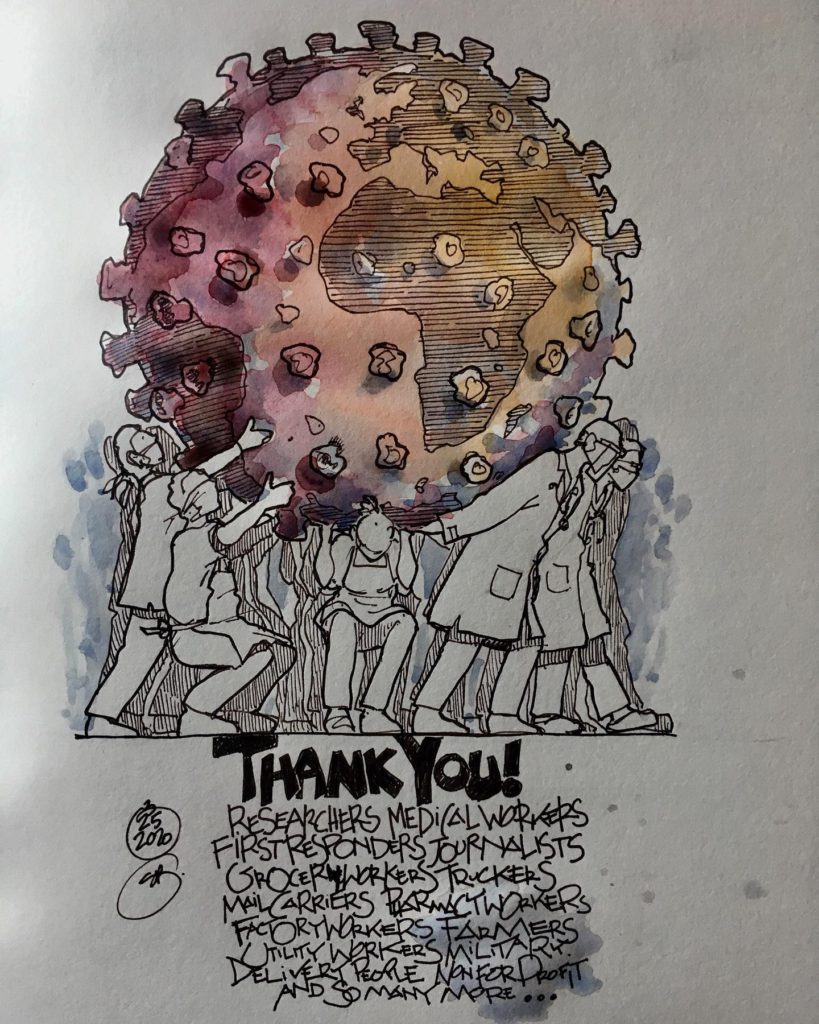What Trump Actually Said About the Use of Disinfectants as a Potential Cure to Coronavirus
Why is it that so many on the political left feel the need to twist Donald Trump's words or even tell lies about what Trump said in order to attack him? On April 24th, the Internet blew up after Trump discussed the potential use of disinfectant to treat people suffering from COVID-19 infections. Many FB and Twitter posts falsely claim or suggest that Trump told members of the public to drink disinfectant or inject themselves with disinfectant. Trump did not say or suggest either of these things.
Before I proceed, I should make clear what I think of the President. In my opinion, Donald Trump is a pathological liar. He is a proudly ignorant. He is a xenophobe and a narcissist. He is modern day philistine. He lacks empathy for real people and he is a bully with mob boss tendencies. His ignorance, lies, inaction and incompetence throughout the month of February failed the American people as the Corona Virus to spread throughout the United States. I've seen ample evidence to prove all of these things. These are some of the many reasons Trump will go down in history as an abysmally incompetent politician.
That said, here are Trump's actual words regarding disinfectant:
"So I asked Bill a question some of you are thinking of if you're into that world, which I find to be pretty interesting. So, supposing we hit the body with a tremendous, whether its ultraviolet or just very powerful light, and I think you said, that hasn't been checked but you're gonna test it. And then I said, supposing it brought the light inside the body, which you can either do either through the skin or some other way, and I think you said you're gonna test that too, sounds interesting. And I then I see the disinfectant, where it knocks it out in one minute, and is there a way you can do something like that by injection inside, or almost a cleaning. Because you see it gets in the lungs, and it does a tremendous number on the lungs. So it'd be interesting to check that. So you're going to have to use medical doctors, but it sounds interesting to me, so we'll see. But the whole concept of the light, the way it goes in one minute, that's pretty powerful."
[As he made his statement, Trump repeatedly looked at Bill Bryan, the head of the science and technology directorate at the Department of Homeland Security]
Over the past months, Trump has shown hostility to science. On April 4, Trump brashly touted the use of a malaria drug for COVID-19, even though the drug had never been subject to double-blind studies. Despite these serious shortcomings regarding science and medicine, Trump did not suggest that people should ingest or inject disinfectant. Trump was wondering out loud whether coronavirus could be cured using disinfectant. He said (looking at Bill Bryan), "So it'd be interesting to check that." He wasn't telling people to get treated using disinfectant, as he recklessly did regarding Hydroxychloroquine.
Here is my suggestion: Whenever people on the political left concoct or embellish facts as they attack Trump, they lose credibility. When they do this, they open themselves up to accusations that they have Trump Derangement Syndrome. Most importantly, when they take liberties with facts, they are doing the same thing Trump often does and this risks losing potential November votes from people from the political center and right.
It is my hope that we on the left would become more self-critical about our own reckless use of accusations. Truly, there are plenty of good reasons for condemning Trump without making shit up.




